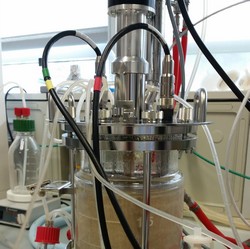Valuable nutrients recovered from rice water
The aim of the BIORICE(opens in new window) (Biotechnology for the recovery of valuable peptides from industrial rice by-products and production of added value ingredients for nutraceuticals, functional foods and cosmetics) project was to develop techniques for the recovery of valuable peptides from industrial rice by-products. Expertise in areas of plant biotechnology, downstream processing and human tissue engineering were made available to small and medium enterprises (SMEs) operating in key markets. Bioconversion of rice protein by-products obtained from starch production yielded novel peptides, while researchers optimised and used the most efficient eco-sustainable protocols. These included methods for membrane filtration to separate peptides by their molecular size through the cross-flow filtration process. Project partners developed and applied a wide range of in vitro and cell-based assays to measure bioactivity and test for safety. To avoid the use of animal testing the researchers formulated a new sensitivity evaluation method using human reconstructed epidermis containing Langherans cells. Rice protein by-products were characterised and then treated with enzymes or microbial whole cells to release small molecular weight peptides. Process conditions and appropriate enzyme choice (two were selected) were optimised especially with regard to hydrolysis yields. After analysis using spectrophotometric techniques and mono-dimensional polyacrylamide gel electrophoresis, the digestates were tested for biological activity. Digestate refers to the substance produced from enzymatic or whole cell microbic digestion. BIORICE will have a significant impact on the competitiveness of SME participants. They will be able to expand their business by adding to their product range new bioactive ingredients and protocols enabling new product formulations applicable in food, cosmetic and nutraceuticals sectors. By addressing the production of high value compounds, while improving efficiency and reducing the overall environmental impacts BIORICE will contribute to the objectives of EU policy initiatives. These include EU waste management directives and policy initiatives such as the Environmental Technology Action Plan and Lead Market Initiative on bio-based products.







